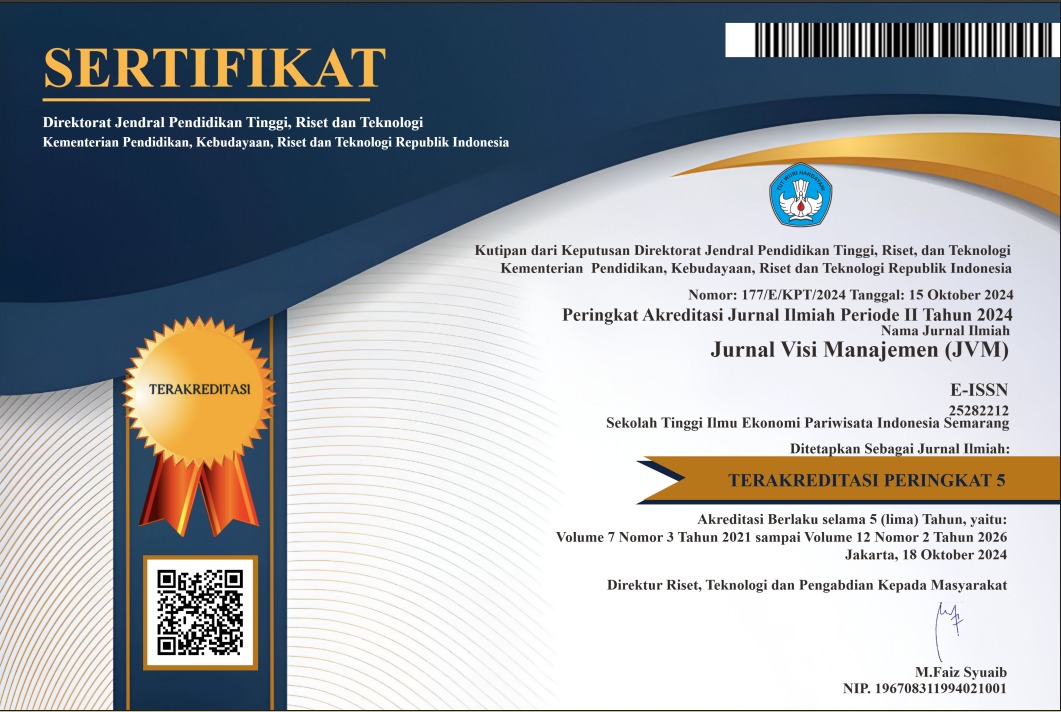Strategi Keberlanjutan Program Usaha Mikro, Kecil, dan Menengah (UMKM) melalui Permberdayaan Narapidana di Lapas Kelas I Malang dan Lapas Kelas I Surabaya
DOI:
https://doi.org/10.56910/jvm.v11i3.880Keywords:
MSMEs, sustainability, inmate empowerment, Triple Bottom Line, competitive strategyAbstract
This study aims to analyze the sustainability strategies of Micro, Small, and Medium Enterprises (MSMEs) programs through inmate empowerment at Class I Correctional Institutions in Malang and Surabaya. The MSME program is positioned not only as a form of self-reliance training but also as a means of social and economic rehabilitation for inmates. The research employs a qualitative case study approach with data collected through observation, in-depth interviews, and documentation. The study applies the Triple Bottom Line theory (profit, people, planet) by Elkington and Porter's competitive advantage theory as analytical frameworks. The findings indicate that each institution applies unique sustainability strategies with distinct advantages and limitations. Lapas Malang emphasizes agriculture-based production but faces challenges in market access and technology. In contrast, Lapas Surabaya benefits from industrial partnerships, yet heavily relies on a single partner. The implementation of sustainability strategies—covering economic, social, and environmental dimensions—shows varying degrees of effectiveness depending on structural support and stakeholder involvement. The study concludes that MSME sustainability in correctional settings requires integrated multidimensional strategies, long-term partnerships, and inmate empowerment aligned with socio-economic developments.
References
Abubakar, H., Palisuri, P., Hernita, Syarifuddin, Syamsuddin, I., & Herman, R. (2021). Keberlanjutan Usaha Mikro Dan Kecil Pedesaan Melalui Pemberdayaan Sumberdaya Lokal. Prosiding 5th Seminar Nasional Penelitian & Pengabdian Kepada Masyarakat 2021 , 480–485.
Anyaq, Y., Nanang, M., & Purba, R. (2022). Pemberdayaan Narapidana Melalui Kegiatan Kerja di Lapas Kelas II A Kota Samarinda. Journal Sosiatri-Sosiologi, 2022(2), 1–12.
Cresswell, T. (2014). Place: an introduction. John Wiley & Sons.
Elkington, J. (1997). CANNIBALS WITH FORKS: The Triple Bottom Line of 21st Century Business.
Freeman, R. E. E., & McVea, J. (2005). A Stakeholder Approach to Strategic Management. SSRN Electronic Journal, March. https://doi.org/10.2139/ssrn.263511.
Khamdan, M., Wiharyani, W., & Setiawati, R. (2024). Transformasi Lembaga Pemasyarakatan Industri Melalui Penguatan Latihan Kerja Dan Kegiatan Produksi Narapidana. JMM (Jurnal Masyarakat Mandiri), 8(2), 1957. https://doi.org/10.31764/jmm.v8i2.21782
Miles, M. B., & Huberman, A. M. (1994). Qualitative data analysis: An expanded sourcebook. sage).
Moleong, L. J. (2017). Metode penelitian kualitatif, cetakan ke-36, Bandung: PT. Remaja Rosdakarya Offset, 6.
Nababan, S. (2024). Program Pemberdayaan Narapidana pada Lembaga Pemasyarakatan Kelas II A Purwokerto. 3(5), 5495–5505.
Oktober, N., Tangdialla, R., Ekonomi, F., Toraja, U. K., Matasik, A. L., Ekonomi, F., & Toraja, U. K. (2021). SAFARI : Jurnal Pengabdian Masyarakat Indonesia Meningkatkan Keberlanjutan UMKM Melalui Program Pendampingan Keuangan Improving Msme Sustainability Through Financial Assistance Program Increasing the Sustainability of MSMEs Through Financial Assistance Pr. 1(4), 31–33.
Peraturan Pemerintah Nomor 31 Tahun 1999 Tentang Pembinaan dan Pembimbingan Warga Binaan Pemasyarakatan
sdppublik.ditjenpas.go.id
Thompson, C., & Loper, A. B. (2005). Adjustment patterns in incarcerated women: An analysis of differences based on sentence length. Criminal Justice and Behavior, 32(6), 714-732.
Undang Undang Dasar Negara Republik Indonesia 1945
Undang Undang Nomor 22 Tahun 2022 tentang Pemasyarakatan
Undang-Undang Nomor 20 Tahun 2008 tentang Usaha Mikro, Kecil, dan Menengah
Wardani, D. K., Khayatinufus, N., Fadhiilah, A. F., & ... (2024). Strategi Sustainability Dan Keunggulan Bersaing Umkm Kuliner Jakarta Selatan. E-Prosiding …, 1–13. http://trilogi.ac.id/journal/ks/index.php/EPAKT/article/view/1995%0Ahttps://trilogi.ac.id/journal/ks/index.php/EPAKT/article/download/1995/962
Zehr, H. (2015). The little book of restorative justice: Revised and updated. Simon and Schuster.
Downloads
Published
How to Cite
Issue
Section
License
Copyright (c) 2025 Jurnal Visi Manajemen

This work is licensed under a Creative Commons Attribution-ShareAlike 4.0 International License.







